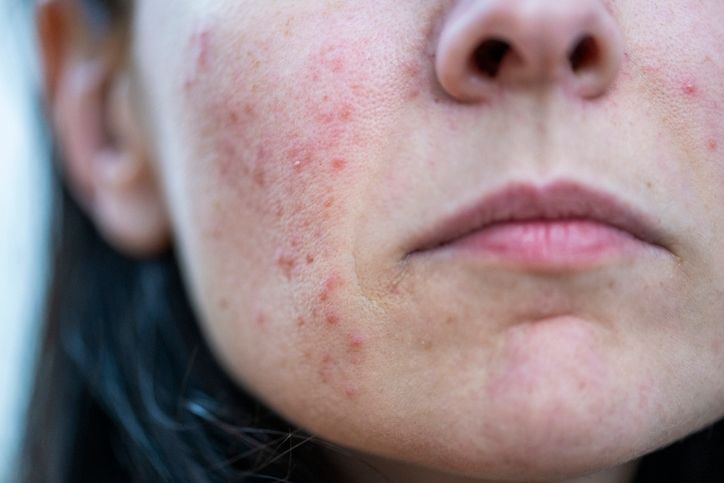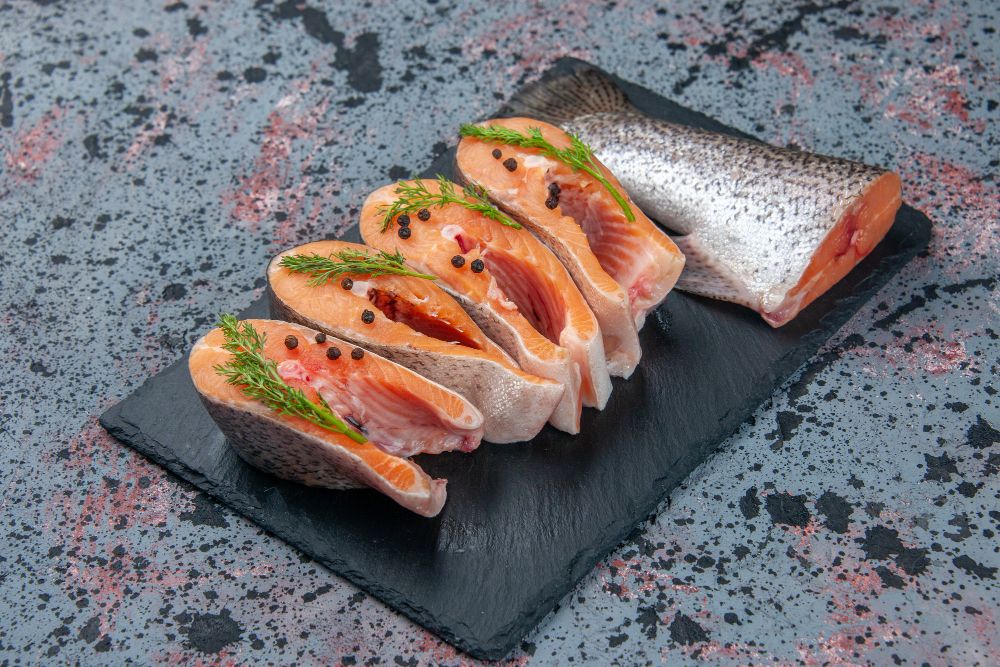
Author: Natalie Ng|Updated: 7 May 2025
If you've been spotting more hair in the shower or noticing your ponytail feels thinner than usual, it might be time to take a closer look at what’s on your plate. Hair fall can sneak up on anyone—whether it’s due to stress, poor nutrition, or simply life doing its thing. But here’s the upside: your diet has a huge impact on your hair’s strength, thickness, and overall health. By loading up on the right nutrients, like omega 3 fatty acids from fatty fish or iron from leafy greens, you’re giving your hair follicles exactly what they need to stay strong and active. These essential nutrients support hair growth, promote hair thickness, and help prevent hair loss before it starts. And no, this isn’t about trendy health fads or complicated routines—just smart food choices that fuel healthy hair from the inside out. Wondering what to eat to stop hairfall and bring back healthy, vibrant strands? Stick around—we’re breaking it all down in the next sections. You’ll be surprised how much your plate can do for your hair.

Eggs: Protein-Rich, Fuel for Healthy Hair Growth
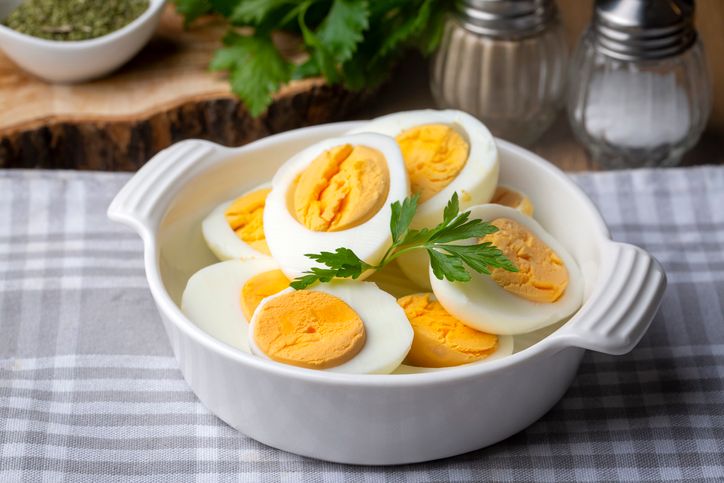
Eggs provide hair protein your strands need
Eggs are one of the easiest ways to add high-quality protein to your diet—something your hair needs to grow. Hair is made mostly of keratin, a type of protein. If your body doesn’t get enough protein, it can slow down hair growth and lead to hair thinning.
Eggs support hair follicles with key vitamins
Eggs contain biotin, a B vitamin linked to healthy hair development and new hair growth. Biotin helps produce keratin and supports strong, healthy hair strands. Sulfur in eggs also plays a role by helping with collagen production, which supports hair structure and strength.
Nutrients in eggs help prevent hair fall
Egg yolks contain vitamin D and vitamin E. Vitamin D supports the hair follicle growth cycle. Vitamin E protects hair follicles from damage by acting as an antioxidant. These vitamins help promote healthy hair growth and may help prevent hair loss caused by poor nutrition or oxidative stress.
Easy to include in your daily meals
You can eat one to two eggs per day. Scrambled, boiled, or added to dishes, they’re simple to include in a balanced diet. Eating eggs regularly helps ensure your hair follicles receive essential nutrients like protein, biotin, vitamin D, and vitamin E—nutrients crucial for overall hair health and hair strength.

Salmon: Omega-3 Packed , Improves Scalp Health
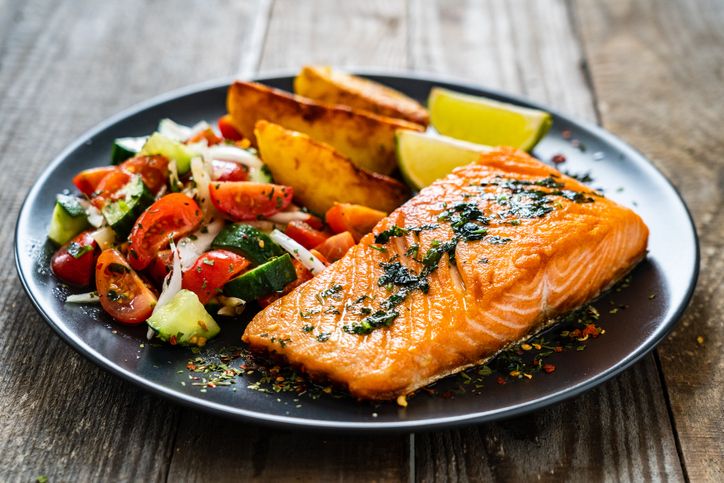
Salmon supports scalp and hair health from the inside
Salmon is a top food choice for promoting hair growth and improving overall hair health. It's rich in omega-3 fatty acids, protein, vitamin D, and several B vitamins—nutrients your hair follicles rely on to stay strong and active. These nutrients also help create ideal conditions for healthy hair development by reducing inflammation and supporting the structure of your scalp.
How omega-3 fatty acids improve scalp condition
Omega-3 fatty acids, including EPA and DHA, found in salmon help reduce scalp inflammation. This is important because chronic inflammation can damage hair follicles and lead to thinning hair or hair loss. By eating salmon, you're helping maintain a calm, balanced scalp environment where hair can grow without interruption.
Boosts natural oil production for healthier hair
Omega-3s also help regulate sebum production. Sebum is your scalp’s natural oil that keeps hair strands moisturized and protects them from dryness and breakage. A balanced level of natural oils means your hair stays soft, less prone to split ends, and less likely to fall out due to brittleness.
Promotes blood flow and nutrient delivery
The B vitamins in salmon—especially B12 and B6—support red blood cell production. These cells carry oxygen and essential nutrients to your scalp, keeping hair follicles nourished and active. This steady nutrient flow is crucial for consistent, healthy hair growth and reducing the effects of iron deficiency that can trigger hair fall.
Helps fight oxidative stress
Salmon contains selenium and phosphorus, which act as antioxidants. These minerals protect your hair follicles from oxidative damage, which can weaken them and slow hair growth. Antioxidants are essential for maintaining the scalp’s repair cycle and keeping hair cells healthy.
Serving tips for better results
To support hair health effectively, try to eat wild-caught salmon two to three times a week. It offers more omega-3 fatty acids and fewer toxins compared to farm-raised fish. You can grill it, steam it, or add it to salads and grain bowls. Including it regularly helps protect hair follicles, encourage new hair growth, and promote healthy hair from root to tip.
Read More
Book Now to Experience
F8 Hair Regrowth Treatment
1 Minute Self-Registration
Date should not be before minimal date

Spinach and Leafy Greens, Iron-Fortified
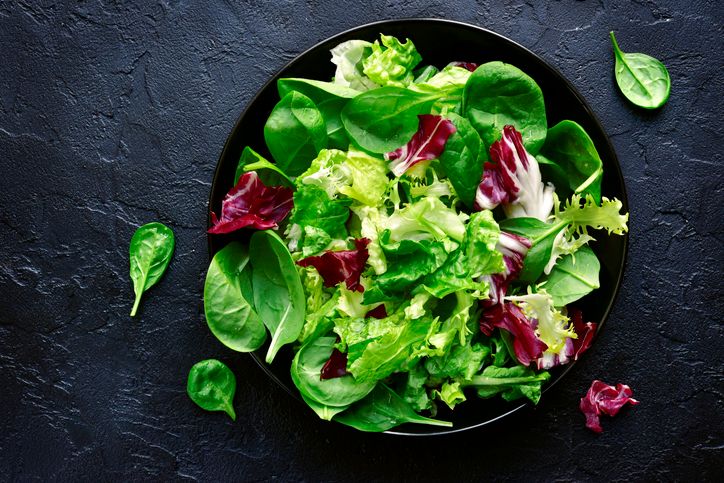
Iron helps prevent hair fall by feeding your follicles
Iron plays a vital role in preventing hair fall. It supports red blood cell production, which helps carry oxygen to your hair follicles. Without enough iron, follicles don’t get the oxygen they need to stay active. This can slow down hair growth and eventually lead to hair thinning or shedding.
Spinach supports hair growth with key nutrients
Spinach and other leafy greens—like kale and Swiss chard—are packed with nutrients that support hair health. They provide non-heme iron, folic acid, vitamin C, and vitamin A. Folic acid helps form red blood cells, while vitamin C improves iron absorption. Vitamin A supports sebum production, which keeps the scalp and hair strands moisturized.
Improve iron absorption with smart food pairings
The iron in plant-based foods is harder for the body to absorb compared to iron from animal products. To help your body absorb more iron from spinach and leafy greens, pair them with vitamin C-rich foods like citrus fruits, bell peppers, or tomatoes. Avoid eating them with dairy or tea, as calcium and tannins can block iron absorption.
Daily serving guide for leafy greens
To support hair growth and prevent iron deficiency, try to include 2–3 cups of raw leafy greens in your daily meals. That’s about 1–1.5 cups of cooked greens. This amount provides enough iron and other nutrients to keep hair follicles nourished and reduce the risk of hair thinning caused by poor nutrition.
| Age Group | Daily Amount | Serving Size |
|---|---|---|
| Adults 19–50 | 2–3 cups | 1 cup raw, ½ cup cooked |
| Seniors 51+ | 1–2 cups | 1 cup raw, ½ cup cooked |
| Pregnant Women | 3–4 cups | 1 cup raw, ½ cup cooked |
Easy ways to eat more greens
You can blend spinach into smoothies with banana and orange juice (for added vitamin C), toss it in a salad, or sauté it with garlic and olive oil for a quick side. The goal is consistency—making sure your hair follicles receive the nutrients crucial for growth and strength every day.

Sweet Potatoes: Beta Carotene for Stronger Hair Strands
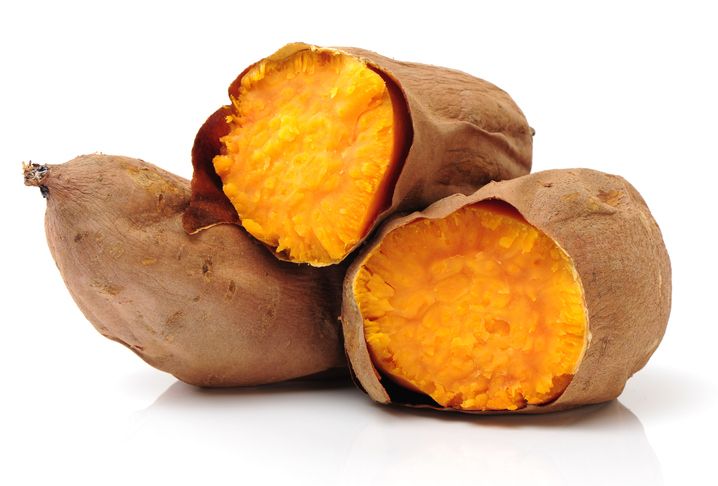
Beta carotene boosts vitamin A and supports hair development
Sweet potatoes are rich in beta carotene, a compound your body converts into vitamin A. This vitamin is essential for healthy hair growth. It supports the production of sebum, the scalp’s natural oil, which keeps your hair moisturized and protected. Vitamin A also helps with the development of new hair strands and protects hair follicles from damage.
Promotes collagen production and protects hair follicles
Sweet potatoes provide additional nutrients like vitamin C and vitamin E. Vitamin C supports collagen production, which is vital for hair strength and structure. It also helps your body absorb iron more efficiently—reducing the chance of hair fall due to iron deficiency. Vitamin E improves blood flow in the scalp, protecting hair follicles and supporting new hair growth.
Helps control inflammation and keeps scalp healthy
The antioxidants in sweet potatoes help reduce inflammation in the scalp. Inflammation can interrupt the hair growth cycle and lead to hair thinning. By eating sweet potatoes regularly, you create a healthier environment for your hair follicles to thrive.
Best cooking methods to preserve nutrients
How you cook sweet potatoes matters. To get the most beta carotene and other hair-supporting nutrients, use gentle cooking methods like steaming or baking. Boiling can reduce nutrient levels, especially vitamin C.
| Cooking Method | Time | Beta Carotene Retention |
|---|---|---|
| Steaming | 15–20 mins | 92% |
| Baking | 45–60 mins | 85% |
| Boiling | 20–25 mins | 75% |
Add a small amount of healthy fat—like olive oil or a slice of avocado—to help your body absorb beta carotene more effectively.
Daily serving recommendation
To support hair health, eat one medium-sized sweet potato (about 200g) three to four times per week. This provides nearly 100% of your daily vitamin A needs. Consistent intake helps maintain the scalp’s natural oil balance and strengthens hair from the roots.
Book Now to Experience
F8 Hair Regrowth Treatment
1 Minute Self-Registration
Date should not be before minimal date

Nuts and Seeds: Essential Fatty Acids for Hair
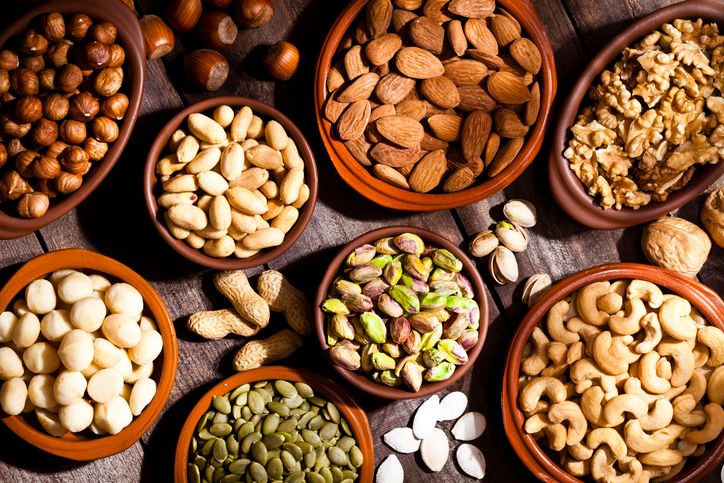
Healthy fats support hair growth and prevent hair fall
Nuts and seeds are rich in essential fatty acids, including omega-3 and omega-6, which are crucial for maintaining healthy hair growth. These fats support hair follicles by reducing inflammation and keeping the scalp balanced. A well-nourished scalp creates the right environment for stronger, thicker hair.
Nutrients that protect hair and strengthen strands
Besides fatty acids, nuts and seeds provide key nutrients like biotin, zinc, selenium, and vitamin E—all of which are essential for hair health.
• Biotin helps promote keratin production, strengthening hair strands and preventing breakage.
• Zinc supports the oil glands around hair follicles, helping prevent hair thinning.
• Selenium helps the body fight oxidative stress that damages hair cells.
• Vitamin E improves scalp circulation and protects against UV and free radical damage.
Each of these nutrients plays a role in the repair cycle of your scalp and helps maintain the thickness and structure of your hair.
Top nuts and seeds for hair health
Different types of nuts and seeds offer different benefits. For best results, include a mix in your daily diet.
| Type | Key Nutrients | Hair Benefit |
|---|---|---|
| Walnuts | Omega-3, biotin, vitamin E | Strengthens strands, supports growth |
| Almonds | Vitamin E, magnesium | Improves scalp circulation |
| Brazil nuts | Selenium | Protects hair cells from damage |
| Pumpkin seeds | Zinc, protein | Maintains scalp health |
| Flaxseeds | Omega-3, lignans | Reduces inflammation |
| Chia seeds | Protein, omega-3, calcium | Supports hair thickness and strength |
Daily intake and simple ways to include them
A small handful of mixed nuts and seeds (about 28g or 1 ounce) is enough to meet your hair-supporting needs. You can snack on them directly, sprinkle them over salads, yogurt, or oatmeal, or blend them into smoothies. Ground flaxseeds or chia seeds also mix well into baked goods or overnight oats.
Eating these consistently gives your body the essential fatty acids, antioxidants, and minerals it needs to support hair growth, prevent breakage, and protect hair follicles.

Biotin-Rich Avocados for Thickness
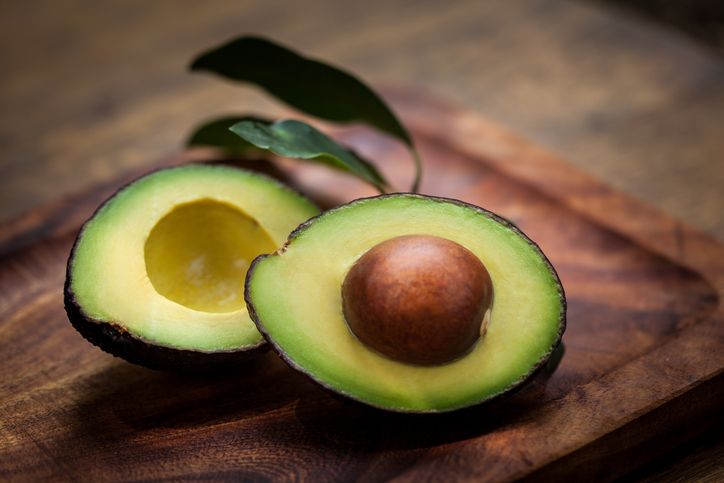
Avocados support thicker hair with biotin and healthy fats
Avocados are packed with biotin, a B-vitamin that promotes keratin production. Keratin is a key structural protein in hair strands, and getting enough biotin in your diet helps strengthen hair and reduce breakage. Avocados are also full of healthy fats, especially monounsaturated fats, which support hair growth and prevent hair thinning.
Vitamin E improves scalp circulation
Avocados are a good source of vitamin E, an antioxidant that improves blood circulation to the scalp. Better circulation helps ensure hair follicles receive the oxygen and nutrients they need to support hair growth. This reduces the risk of hair thinning linked to poor blood flow or nutritional deficiencies.
Nutrient profile supports overall hair health
Besides biotin and vitamin E, avocados offer a mix of other nutrients that contribute to healthy hair:
| Nutrient | Hair Benefit |
|---|---|
| Omega-3 | Reduces inflammation, supports healthy scalp |
| Vitamin B complex | Helps prevent hair loss and supports hair cell repair |
| Potassium | Balances fluid levels, supports nutrient transport |
| Copper | Aids melanin formation, maintaining natural hair color |
These nutrients work together to protect hair follicles, improve hair strength, and support overall hair health.
Helps with nutrient absorption
The healthy fats in avocados also improve your body’s ability to absorb fat-soluble vitamins like vitamin A, D, E, and K. This matters for hair health, because these vitamins are involved in scalp repair, oil production, and follicle health. Without enough fat in your diet, your body can't fully use these vitamins, even if you’re eating foods that contain them.
How to include avocados in your meals
One medium-sized avocado contains 2–6 micrograms of biotin and around 2 mg of vitamin E. You can slice it onto whole-grain toast, add it to salads, or blend it into smoothies. Aim to eat avocado three to four times a week to help support hair growth, hair thickness, and prevent hair loss due to nutritional deficiencies.
Book Now to Experience
F8 Hair Regrowth Treatment
1 Minute Self-Registration
Date should not be before minimal date

Lean Meats: Zinc and Protein Combo for Hair Strength
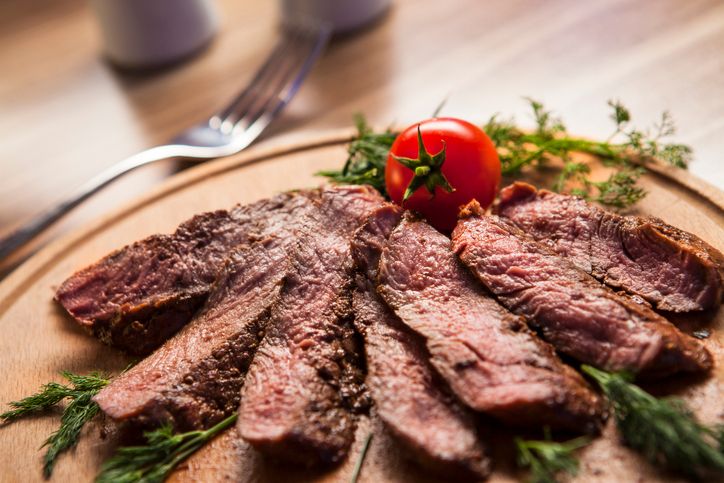
Protein builds the structure of your hair strands
Hair is made of keratin, a type of protein. Without enough protein in your diet, hair strands become weak, brittle, and more likely to fall out. Lean meats like chicken, turkey, beef, and pork are excellent sources of complete protein. These provide the essential amino acids your body needs to build strong, thick hair and support the repair cycle of hair cells.
Zinc supports healthy follicles and reduces shedding
Zinc plays a key role in maintaining hair follicle strength and regulating oil production in the scalp. It helps balance hormones that can trigger hair thinning or conditions like male pattern baldness and female pattern baldness. Zinc also supports immune function, which is important for protecting hair follicles from inflammation-related damage.
Nutrients in lean meats promote blood flow and oxygen delivery
Lean red meats like beef and pork are rich in heme iron—a form of iron your body absorbs easily. Iron helps form red blood cells, which deliver oxygen and nutrients to your scalp. This ensures your hair follicles get the support they need to stay active and produce new hair growth. Iron deficiency is one of the leading causes of hair loss, especially in women.
Best choices and serving suggestions
These types of lean meats offer a strong nutritional profile for hair health:
| Type | Key Nutrients | Hair Benefit |
|---|---|---|
| Chicken breast | Protein, B vitamins | Builds strong hair strands |
| Turkey | Iron, zinc | Supports follicle health and oxygen flow |
| Lean beef | Heme iron, zinc, vitamin B12 | Prevents hair loss due to iron deficiency |
| Pork tenderloin | Protein, B vitamins, selenium | Strengthens follicles, supports cell function |
| Salmon (again) | Omega-3, protein | Adds healthy fats and protein to diet |
How much to eat for hair benefits
Aim to include two servings of lean meat per day. One serving is roughly 100g (about the size of your palm). Spread these across meals to give your body consistent access to nutrients that support healthy hair growth and reduce the chance of thinning hair.

Citrus Fruits: Vitamin C for Collagen and Iron Absorption
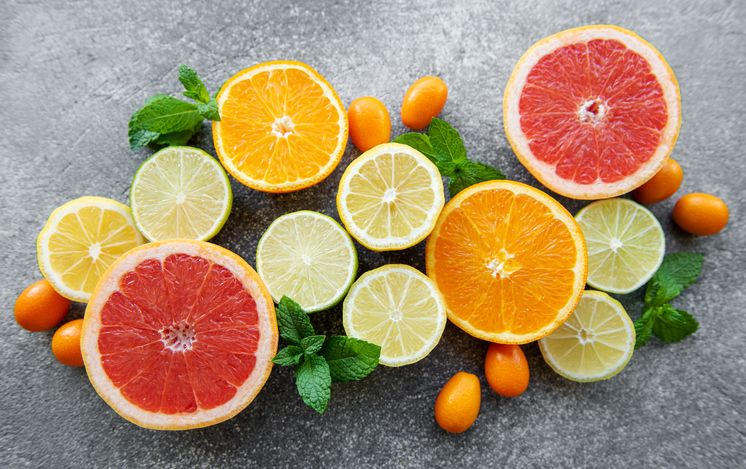
Vitamin C helps your body absorb iron
Citrus fruits like oranges, lemons, grapefruits, and limes are rich in vitamin C, a nutrient that plays a key role in how your body absorbs iron. Iron is essential for hair growth because it helps red blood cells deliver oxygen to your scalp. Without enough vitamin C, your body struggles to absorb iron from plant-based sources, which can lead to iron deficiency and trigger hair fall.
Collagen production supports strong hair strands
Vitamin C is also needed for the production of collagen. Collagen is a protein that supports the structure of your hair strands and the skin around your hair follicles. Without enough collagen, hair becomes weaker and more prone to breakage. Eating vitamin C-rich citrus fruits helps keep hair strong, elastic, and resilient.
Antioxidant protection for your scalp
Vitamin C acts as a powerful antioxidant, protecting hair follicles from damage caused by free radicals. These unstable molecules can harm hair cells, disrupt the scalp’s natural oil balance, and slow down hair growth. By eating citrus fruits regularly, you help maintain a healthy scalp environment and reduce oxidative stress that can lead to hair thinning.
Easy ways to include citrus fruits in your diet
You can add citrus fruits to your diet in simple ways:
• Eat oranges or grapefruits as a snack
• Add lemon juice to water or tea
• Mix lime juice into dressings or marinades
• Combine citrus segments into salads or smoothies
When to eat citrus for maximum benefit
For best results, pair citrus fruits with iron-rich foods like spinach, legumes, or fortified cereals. This helps the body absorb more non-heme iron and reduces the risk of iron-related hair loss. Avoid drinking tea or coffee with these meals, as they can block iron absorption.
Book Now to Experience
F8 Hair Regrowth Treatment
1 Minute Self-Registration
Date should not be before minimal date

Whole Grains: B-Vitamins That Support Hair Growth
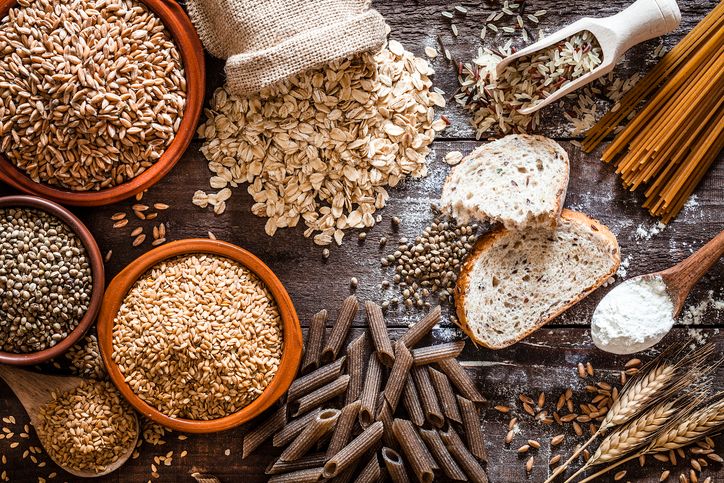
B-vitamins in whole grains fuel hair development
Whole grains are a key source of B-vitamins like B6, B12, and folic acid. These vitamins support the development of red blood cells, which carry oxygen and nutrients to your hair follicles. Healthy circulation to the scalp is essential for continuous, healthy hair growth and for preventing hair thinning caused by poor nutrient delivery.
Supports keratin production and scalp health
Whole grains also provide biotin, another B-vitamin that helps produce keratin—the main protein in hair. A diet that includes enough biotin helps strengthen hair strands and can reduce hair breakage. Biotin is especially important if you're dealing with brittle hair or hair loss due to nutritional deficiencies.
Provides essential nutrients for long-term hair health
In addition to B-vitamins, whole grains contain iron, zinc, selenium, and complex carbohydrates. These nutrients help maintain scalp health, support hair follicles, and regulate sebum production.
| Whole Grain | Key Nutrients | Hair Benefit |
|---|---|---|
| Brown rice | Biotin, magnesium | Supports keratin production and scalp balance |
| Oats | Iron, omega-3 fatty acids | Promotes follicle nourishment and reduces shedding |
| Quinoa | Protein, zinc | Builds hair structure and strengthens hair strands |
| Whole wheat | Selenium, B vitamins | Protects against free radicals, supports cell repair |
| Barley | Copper | Helps maintain natural hair color |
Ideal portions and how to include them
Aim to include 3–5 servings of whole grains each day. One serving equals about ½ cup of cooked grains or 1 slice of whole-grain bread. Spread your intake across meals—add oats at breakfast, brown rice at lunch, or a quinoa salad at dinner. These provide slow-releasing energy and steady nutrient support for your hair follicles throughout the day.

Sunflower Seeds and Other Seeds: Small but Packed with Hair Nutrients
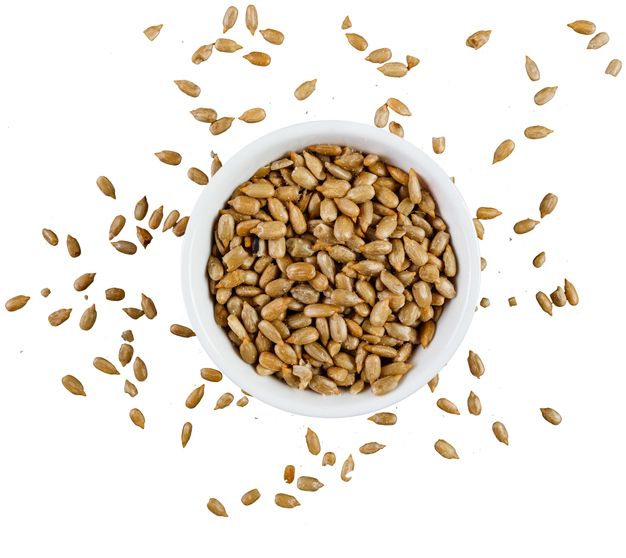
Essential fatty acids support scalp health
Sunflower seeds, along with chia seeds, flaxseeds, and pumpkin seeds, are rich in essential fatty acids like omega-3 and omega-6. These nutrients help reduce inflammation around the hair follicles, which supports a healthy scalp environment for hair growth. They also assist with sebum production, keeping hair strands moisturized and protected from breakage.
Vitamin E improves circulation to the scalp
Sunflower seeds are one of the best plant sources of vitamin E. This vitamin boosts blood flow to the scalp, ensuring your hair follicles receive enough oxygen and nutrients. Improved circulation supports stronger roots and helps reduce hair thinning over time.
Zinc and selenium protect hair cells
Many seeds also provide zinc and selenium—two minerals that protect hair cells from oxidative stress. Zinc helps regulate hormone levels that affect hair growth and supports the function of oil glands around hair follicles. Selenium helps prevent cellular damage, maintaining the repair cycle needed for healthy hair development.
Easy ways to include seeds in your meals
You only need a small amount of seeds each day to get their full hair-supporting benefits. Try adding 1–2 tablespoons of sunflower seeds, chia seeds, or ground flaxseeds to:
• Oatmeal or yogurt
• Smoothies
• Salads or grain bowls
• Homemade energy bars
| Seed Type | Key Nutrients | Hair Benefit |
|---|---|---|
| Sunflower seeds | Vitamin E, selenium | Boosts circulation, reduces cell damage |
| Chia seeds | Omega-3, calcium, protein | Supports hair strength and hydration |
| Flaxseeds | Omega-3, lignans | Reduces inflammation, supports follicle health |
| Pumpkin seeds | Zinc, iron, protein | Strengthens follicles, supports sebum balance |
Eating these regularly helps promote healthy hair growth, protect hair follicles, and reduce the risk of thinning hair caused by poor nutrition.
Book Now to Experience
F8 Hair Regrowth Treatment
1 Minute Self-Registration
Date should not be before minimal date

Final Tips: Eating Right to Prevent Hair Fall and Support Hair Growth
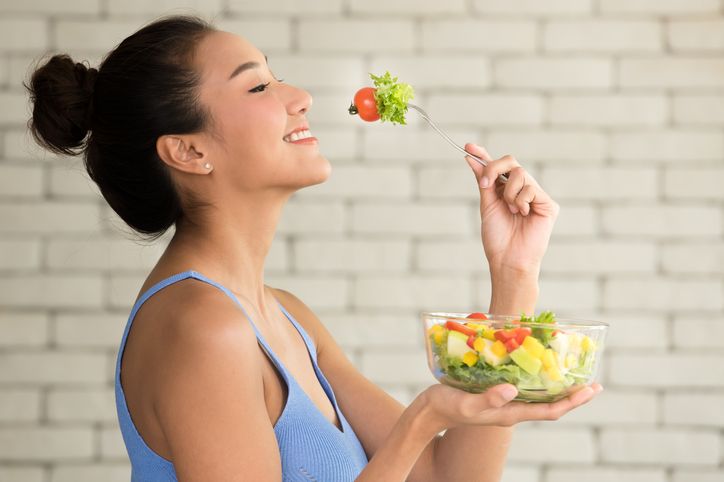
Build a balanced diet for consistent results
Hair health depends on daily nutrition. A single “superfood” won’t fix thinning hair or reverse hair loss, but a consistent, balanced diet packed with essential nutrients can make a big difference over time. Focus on including a mix of these hair-supporting foods in your routine:
• Protein sources like eggs, lean meats, and Greek yogurt support keratin production and hair strength.
• Iron-rich leafy greens and vitamin C-rich citrus fruits help your body absorb iron and deliver oxygen to your follicles.
• Fatty fish and seeds provide omega-3 fatty acids and antioxidants to reduce scalp inflammation and protect hair follicles.
• Sweet potatoes and avocados add beta carotene, vitamin E, and healthy fats to your diet, which support sebum production and scalp health.
• Whole grains and nuts offer B vitamins, zinc, and selenium that maintain scalp function and the repair cycle of your hair cells.
Simple habits that promote healthy hair growth
To get the most out of your food choices and prevent hair fall, keep these daily habits in mind:
• Eat a variety of whole, nutrient-rich foods every day.
• Pair iron-rich vegetables with vitamin C sources to help your body absorb iron more effectively.
• Avoid excess caffeine and processed sugar, which can interfere with nutrient absorption.
• Drink enough water to support the health of hair strands and scalp tissue.
• Aim to include omega-3 fatty acids, biotin, and vitamin E regularly in your meals to promote hair growth and reduce breakage.

Boost Your Diet Results with F8 Hair Regrowth Treatment
Eating the right foods is one of the most effective ways to improve hair health, support hair growth, and prevent hair loss—but for some people, nutrition alone may not be enough. If you’re already following a balanced diet full of iron, biotin, omega-3 fatty acids, and vitamin E, but still struggling with thinning hair, the F8 Hair Regrowth Treatment can help take your results further.
This non-invasive treatment works by using low-energy laser technology to stimulate your scalp. The laser energy targets hair follicles and the surrounding capillaries, encouraging better blood circulation, which helps your body deliver the essential nutrients (like those from your diet) directly to the root of the problem—your hair follicles. This can improve your scalp condition, strengthen hair strands, and support healthy hair growth long after the treatment course ends.
How the F8 Hair Regrowth Treatment works:
• Step 1: A gentle low-energy laser is applied to the scalp. This helps stimulate hair papilla and inactive hair follicles.
• Step 2: A nourishing serum is massaged into the scalp to hydrate and rebalance the scalp's oil levels—key for reducing clogged pores and helping the body absorb nutrients effectively.
• Step 3: With better scalp microcirculation and a stronger follicle foundation, you’ll notice improvements in hair texture, thickness, and growth speed.
Why pair this with your nutrition plan?
Even with a diet rich in iron, omega-3, vitamin C, and other nutrients crucial for hair strength, your follicles may not be getting everything they need—especially if blood circulation or scalp health is compromised. The F8 treatment helps improve how your body delivers and uses those nutrients, creating the ideal environment for new hair growth, better hair development, and reduced hair fall.
Key benefits of the F8 Hair Regrowth Treatment:
• Non-invasive: No injections, no pain, no downtime.
• Scalp-focused: Targets root causes like poor circulation and weak follicles.
• Long-lasting effects: Strengthens hair from the inside, even after sessions end.
• Supports all hair types: Works well for people with male pattern baldness, female pattern hair loss, alopecia areata, and other common hair loss concerns.
Whether you're already eating more leafy greens, fatty fish, and vitamin-rich foods or just starting to focus on what to eat to stop hairfall, combining that effort with the F8 Hair Regrowth Treatment gives your hair a real chance to recover, grow, and thrive.
Book F8 today and give your scalp the support it needs—inside and out.
New Beauty's F8 Hair Regrowth TreatmentBook Now to Experience
F8 Hair Regrowth Treatment
1 Minute Self-Registration
Date should not be before minimal date
FAQ
How Long Does It Take to See Results After Changing Your Diet?
You'll typically notice dietary changes affecting your body within 4-8 weeks, though the timeline varies based on your specific nutritional adjustments and individual metabolism. For significant improvements in hair health, you'll need to maintain consistent dietary changes for 3-6 months, as hair growth cycles operate on a longer timeline. Your overall health markers may show positive changes sooner, within the first month of improved nutrition.
Can Supplements Replace Food Sources for Preventing Hair Loss?
While supplements can provide concentrated doses of essential nutrients, they shouldn't completely replace whole food sources for preventing hair loss. Your body absorbs nutrients more effectively from natural foods, which also contain additional beneficial compounds that work synergistically. You'll get better results by using supplements as complements to a balanced diet, ensuring you're getting vitamins, minerals, and proteins from both sources.
What Time of Day Is Best to Eat These Foods?
You'll get the most benefit from hair-healthy foods when you consume them throughout the day, spacing them across breakfast, lunch, and dinner. Protein-rich foods are particularly effective when eaten within an hour after waking up, while iron-rich foods absorb better when consumed with vitamin C sources during lunch. Evening meals can focus on zinc and omega-3 rich options, but don't eat heavy meals close to bedtime.
Should These Foods Be Eaten Raw or Cooked for Maximum Benefits?
You'll get different nutritional benefits depending on how you prepare hair-healthy foods. Eat raw carrots, nuts, and berries to preserve their vitamins and enzymes, while you should cook spinach, eggs, and legumes to enhance nutrient absorption. Some foods, like sweet potatoes and fish, need cooking to make their nutrients bioavailable, but avoid overcooking as this can destroy essential vitamins and minerals.
Are There Any Food Combinations That Could Reduce Nutrient Absorption?
You'll want to avoid pairing calcium-rich foods with iron sources, as calcium interferes with iron absorption. Don't combine tannin-containing beverages like tea and coffee with iron-rich foods, and steer clear of mixing zinc sources with high-phytate foods such as whole grains, as this can reduce mineral absorption substantially.
Recommended Articles
COPYRIGHT© NEW BEAUTY MANAGEMENT LIMITED 2026. ALL RIGHT RESERVED.

